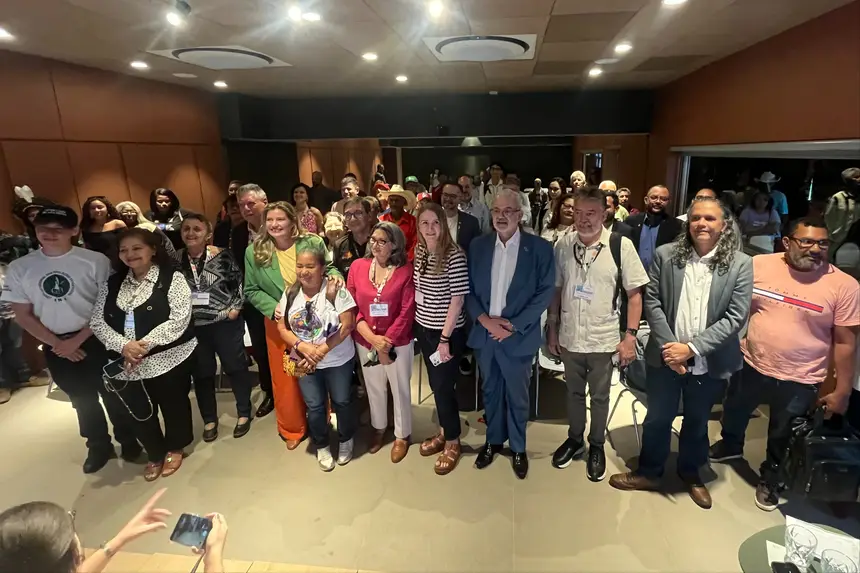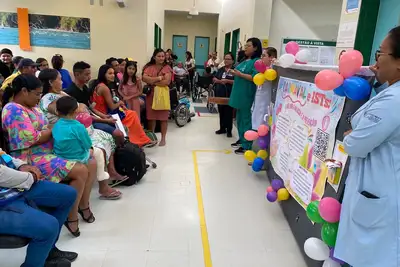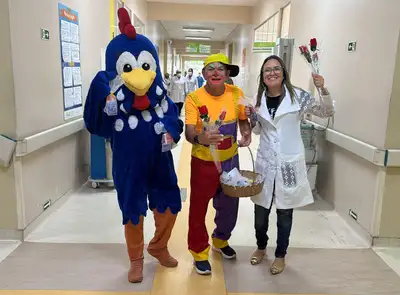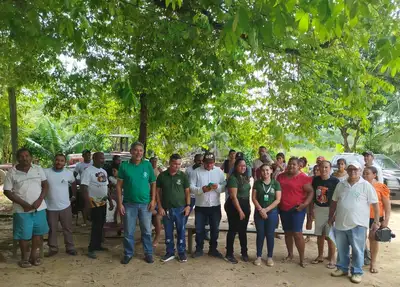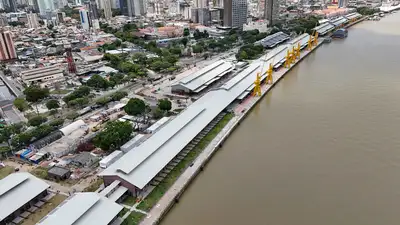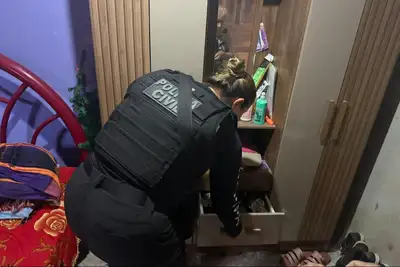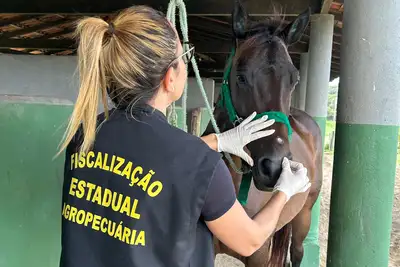Scientific Community of the Amazon Presents Contributions to Brazil's Action Agenda
Fapespa reinforced the role of the Amazon in global climate discussions, highlighting science and technology as pillars for building a sustainable future
The Scientific and Technological Community of the Amazon gathered this Wednesday (12) at the Museum of the Amazons (MAZ) for the panel "Contributions of the Scientific and Technological Community of the Amazon to Brazil's Action Agenda – Overcoming the Challenges of Climate Mitigation and Adaptation." The event was part of the Global Effort led by the COP30 Presidency, aiming to translate the knowledge produced in the region into concrete solutions for addressing the climate crisis.
The initiative seeks to directly contribute to the implementation of Brazil's Nationally Determined Contributions (NDCs) from 2025 to 2035 and to fulfilling the commitments made under the Paris Agreement.
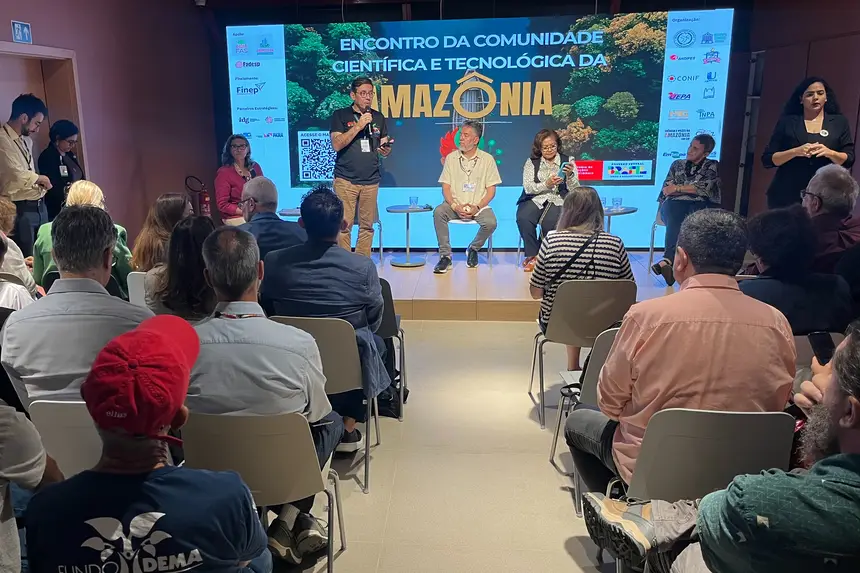
Collective Effort - On this occasion, the book "Meeting of the Scientific and Technological Community of the Amazon" was launched, resulting from the Meeting of the Scientific and Technological Community of the Amazon with the President of COP30 in Brazil, Ambassador André Côrrea do Lago, and the First Lady of Brazil, Rosângela Lula da Silva (Janja), held in August 2025 in Manaus (Amazonas). The work brings together contributions from over 70 Higher Education, Technological, and Science, Technology, and Innovation Institutions, representing a collective effort of the scientific community in favor of more effective and territorially appropriate climate policies.
The panel, promoted by the Sustainable Economic and Social Development Council (CDESS), presented the main results of this joint work and included the participation of the Deputy Secretary of CDESS, linked to the Secretariat of Institutional Relations, Raimunda Monteiro, as the moderator of table 01, composed of Marilene Corrêa from the Federal University of Amazonas/Museum of the Amazon (Ufam/Musa) and a CDESS councilor – representing the SBPC (Brazilian Society for the Progress of Science); Henrique Pereira from the National Institute for Amazon Research (Inpa); Tatiana Sá from the Brazilian Agricultural Research Corporation (Embrapa); Gregorio Sánchez, professor and researcher at the Autonomous Service of the Amazonian Center for Research and Control of Tropical Diseases (SACAICET) in Venezuela; and Marcel Botelho, Vice President of the National Council of State Foundations for Research Support (Confap) and President of the Amazon Foundation for Support of Studies and Research (Fapespa).
"These institutions are engaged in a transversal work for COP30. I would say it is the COP of applying traditional knowledge and scientific knowledge. It is the COP that will be able to synthesize what the world thinks about the Amazon, but from its own subjects. One thing we know: without the Amazon, from the active subjects in the Amazon, it will be difficult to create a policy for the mitigation of natural resources and to make our compensation, just as we transmit to other biomes and ecosystems what it is to live together with nature, being part of it," said Professor Marilene Corrêa, a member of the Board of the Brazilian Society for the Progress of Science, who composed the first table of the panel.
Table 02 was composed of panelists Vanessa Graziotin, Secretary of the Amazon Cooperation Treaty Organization (OTCA/Brazil); Marcelo Bregagnoli, Secretary of Professional and Technological Education, linked to the Ministry of Education (Sectec/MEC); Matheus Azevedo, CDESS councilor; Tanara Lauschner, Rector of Ufam; and Luís Antônio Elias from the Financing Agency for Studies and Projects (Finep). The moderation was led by Esther Bemerguy, CDESS councilor.
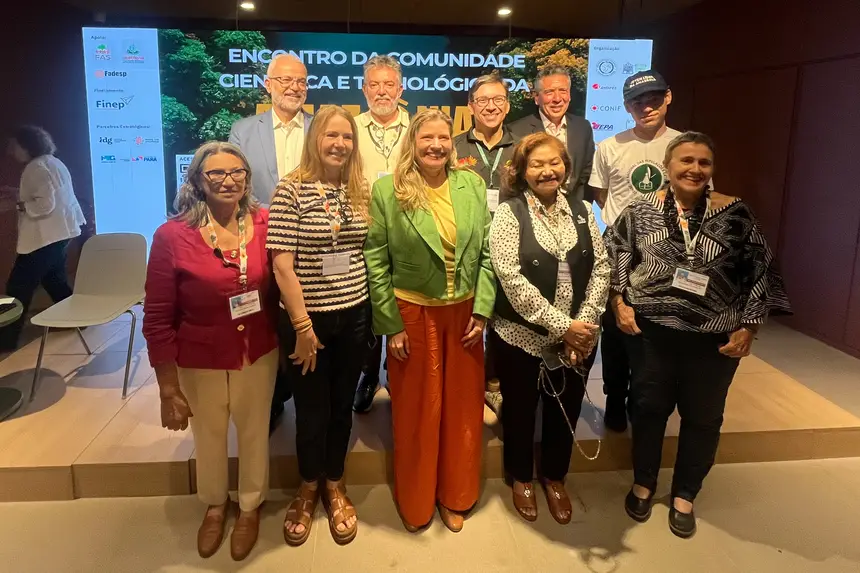
Foundations for the Future - Among the topics discussed are innovative solutions proposed by technology institutions and the challenges of climate change mitigation and adaptation. The expectation is that the meeting will contribute to strengthening the role of the Amazon in global climate discussions, highlighting the importance of science and technology as foundations for building a sustainable future.
Experts presented different perspectives on how science, technology, and information can generate positive impacts for sustainable production and the improvement of living conditions for local populations. They also highlighted the importance of valuing traditional knowledge and ancestral knowledge of Amazonian communities as an essential part of Brazil's sustainable development.
For Matheus Azevedo, an Amazonian activist and researcher, "today, building this great network, and this connection between academic scientific knowledge, but also traditional scientific knowledge, it is necessary to break the taboo of separating the two worlds into two boxes, as historically, the system wanted to shape us. We need to understand that the Amazons, multiple in their plurality, are producing science, knowledge, and technology in all their daily lives, and in their nuances, from the simplicity of their daily routines. And these communities, at the foot of the territory, from their traditional experiences and the legacy of ancestry they carry, are also scientists, they are also producing knowledge. They are the guardians and scientists of the forest."
Matheus Azevedo reinforced in the conversation that the academic methodology itself already shows that the most effective results come with continuous practices and tests, in the daily life of the community and the territory. According to him, it is a great test of resistance and resilience that these communities continue to practice in their ways of life, to maintain the relationship with the territory, with this wealth of biodiversity that is the Amazon.
'Amazon +10' - Marcel Botelho emphasized that the Research Support Foundations (Faps) develop a very interesting work, which represents the encouragement of science, technology, and innovation, which is the Amazon +10 Initiative. "This is an initiative of 25 FAPs, and we already have French Guiana as a participating member of this initiative. The idea is to expand further, to the Pan-Amazon, because it is the same ecosystem with various differences among them, but we have the conditions to expand. And we have European partners providing resources. But what is the big difference of this initiative compared to so many others that have already been made in the Amazon? It is that it seeks the protagonism of the Amazonians, of the institutions and researchers of the Amazon," explained the head of Fapespa.
Regarding the policies of support and promotion of science and technology in the Amazon, Marcel Botelho informed that "all resources from the FAPs are external because we have a legal impediment of not being able to allocate resources from Pará to Amazonas, for example. But CNPq can, Capes (Coordination for the Improvement of Higher Education Personnel) can, Finep can, the British Council can, and so on. So, all external resources can only be applied in the Amazon to ensure that there is not only the development of the social capital of people, of scientists, of scholarships, but also the development of the institution. The ecosystem is formed by this whole."
Thus, the panel promoted by the "Conselhão" (as the Sustainable Economic and Social Development Council is called) brought together councilors and scientists from the Amazon to discuss contributions to Brazil's Action Agenda aimed at social transformation and sustainability.
Text: Jeisa Nascimento, intern, under the supervision of Manuela Oliveira - Ascom/Fapespa


